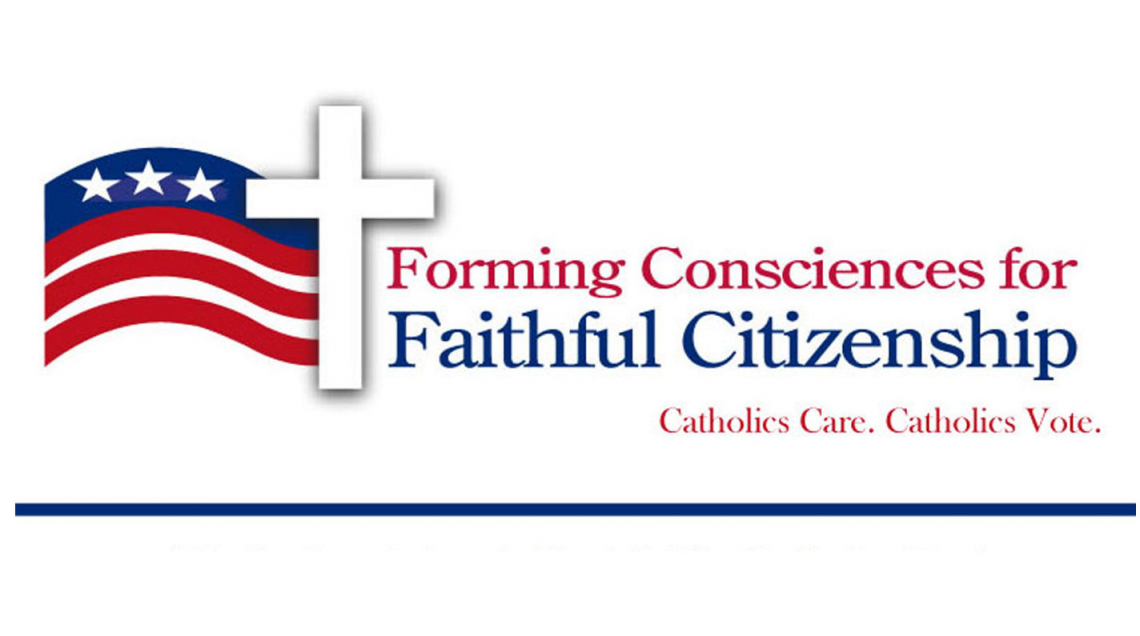From the Bishop - September 2020

The year 2020 has been a memorable one. The greatest challenge, of course, has been the COVID-19 pandemic, which has caused great dislocation. In our diocese, we have worked hard to keep people safe while returning to worship in a limited fashion. I am grateful for the good work done by the priests of the diocese, supported by the dedication of their staffs in bringing this about. The extra protocols for preparing the church and for cleaning and sanitizing after Mass have been demanding. I think it important to be mindful of the difficulties met by our priests and their staffs so that we can all appreciate what they are doing.
But 2020 also puts us in an election season. It is hardly necessary to remind you of that since the season seems unending and election commercials interminable. Now, however, we are close to November and the presidential election. In addition to the president, we will also cast votes for representation in Congress. It is always an important election. It seems, therefore, a good time to remind you that the Church affirms that every Catholic is called to prayerful, active, and responsible participation in the political process. As such, I urge all Catholics in Maine who are eligible to register and vote.
This year, it seems important to note that Maine makes it convenient to vote absentee. The entire process can be done by mail. As such, we can vote without endangering our health. We are both Catholics and Mainers and follow the dual calling of faith and citizenship. Our Holy Father, Pope Francis, has said, "We need to participate for the common good. Sometimes we hear: a good Catholic is not interested in politics. This is not true: good Catholics immerse themselves in politics by offering the best of themselves so that the leader can govern.”
In this election year, the Catholic bishops of the United States are pleased to offer once again to the Catholic faithful Forming Consciences for Faithful Citizenship, a teaching document on the political responsibility of Catholics. This statement represents guidance for Catholics in the exercise of their rights and duties as participants in our democracy. It is available (also in Spanish) here: www.faithfulcitizenship.org/. As the document states we, your bishops, “urge our pastors, lay and religious faithful, and all people of good will to use this statement to help form their consciences; to teach those entrusted to their care; to contribute to civil and respectful public dialogue; and to shape political choices in the coming election in light of Catholic teaching.” The Faithful Citizenship website includes videos, prayer resources, and handouts that will help you prepare to exercise your responsibility as a citizen.
In other election cycles, Suzanne Lafreniere, our diocesan director of public policy, was able to visit our parishes and speak to groups about the virtue of faithful citizenship and the moral obligation of participation in the political process. That will not be possible this year, but I am confident that the materials which are found online will be helpful in guiding the choices needed to be made in voting.
Catholics believe that we should base important decisions on what we call “an informed conscience.” Voting is such an important decision. Our catechism puts it this way: “Conscience must be informed and moral judgment enlightened. A well-formed conscience is upright and truthful. It formulates its judgments according to reason, in conformity with the true good willed by the wisdom of the Creator…” (Catechism of the Catholic Church, #1783). We are all confronted by situations, those gray areas of dilemma, that make moral judgments less certain and more difficult to decide upon. But the obligation remains to seek seriously what is right and good and discern the will of God expressed in divine law. To make decisions only on the basis of utility, pragmatics, party loyalties, or opinion polls would not be in accordance with the catechism, or with our faith.
As Catholic citizens, we should keep three things in mind when going to the polls in November: 1. Respect for the dignity of each human person is the core of Catholic social and moral teaching. The Catholic Church proclaims that human life is sacred and that the dignity of the human person is the foundation of a moral vision for society. This belief is the foundation of all the principles of our social teaching. 2. We focus on the common good, not our own personal interests. We ask, how can we make the world a better place, not, how can I improve my own personal situation? 3. We have a responsibility—a true obligation—to form our consciences and participate in the civic life of this nation.
Elections, however, are not the only time we might call on these principles. In our letter accompanying Faithful Citizenship this year, we bishops have asked Catholics from every walk of life to bring their faith and our consistent moral framework to contribute to important work in our communities and our nation on an ongoing basis. In this coming year and beyond, we urge leaders and all Catholics to respond in prayer and action to the call to faithful citizenship. In doing so, we live out the call to holiness and work with Christ as He builds His kingdom of love.










